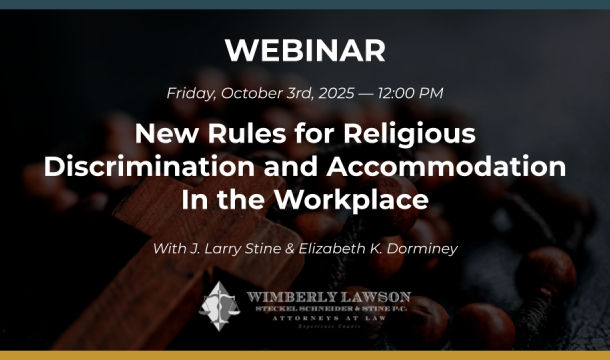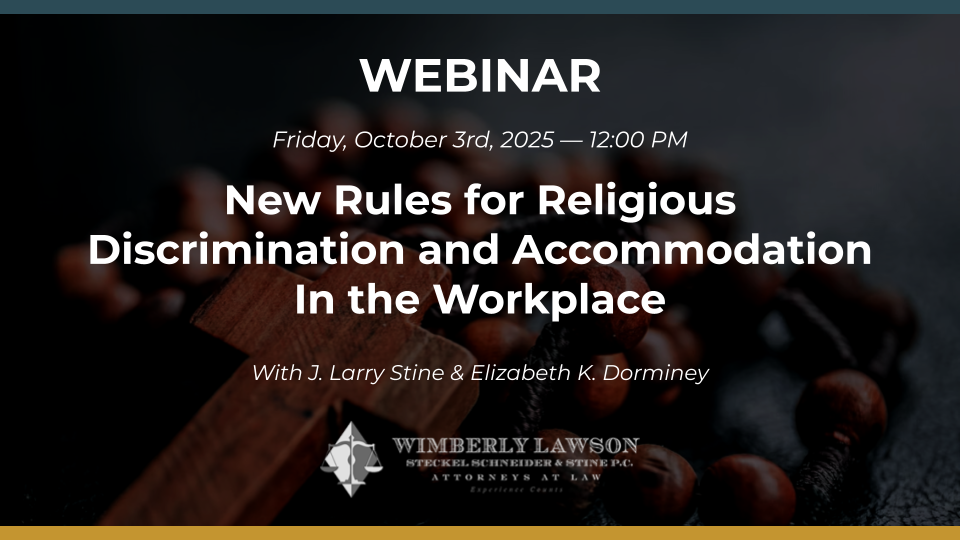Workplace Romance is not Dead
With Valentine's Day coming up in less than a week, it is a natural time for companies to review their workplace dating/relationship/fraternization policies. If your company does not have one, it is time to implement one in light of the #MeToo movement and increased awareness of all things harassment. If your company does have one, take the time to review it. Is it clear? Logical? How is it working?
Some employers have taken the step of banning all workplace dating as a way to prevent potential sexual harassment complaints. That seems a bit harsh, especially considering that a lot of people spend most of their time at work, and therefore, are likely to meet potential dates there. As a practical proposition, managing workplace romance does not necessarily mean prohibiting workplace romance. Employers may risk losing valuable workers if they do so. Furthermore, the stronger the prohibition, the more likely people will keep these relationships secret. And the employer who doesn't know about these relationships runs a greater risk of sexual harassment complaints if the romance turns sour. If romances are prohibited, the employer does not really know what's going on: a year after a consensual relationship breaks up, some employee walks into the office and says, "I'm being sexually harassed by my supervisor." Employers should try to manage these relationships in a way that maintains a productive, happy workforce on the one hand, and doesn't overly intrude into the employees' private lives, on the other hand.
Facebook and Google have taken an interesting approach. Their policies allow an employee to ask a co-worker out one time. If they are turned down, they don't get to ask again. Ambiguous answers such as "I'm busy" or "I can't that night," count as a "no."
The relationships that do need to be banned or very carefully managed are those between supervisors and subordinates. Those are the relationships that are most likely to result in claims of harassment or favoritism. Even if both parties willingly enter into the relationship, if things end badly, the subordinate may later claim that he or she was coerced into the relationship by the person who had more power. Ugly.
Pro tip: Workplace romance happens. Therefore, a company should have a written policy in place that clearly spells out what types of behaviors and relationships are allowed and prohibited in the workplace. An effective policy can minimize the danger and damages of discrimination, harassment, and wrongful discharge lawsuits, as well as suits alleging an invasion of privacy.

Kathleen J. Jennings is a former principal in the Atlanta office of Wimberly, Lawson, Steckel, Schneider, & Stine, P.C. She defends employers in employment matters, such as sexual harassment, discrimination, Wage and Hour, OSHA, restrictive covenants, and other employment litigation and provides training and counseling to employers in employment matters.
Related Content
Get Email Updates
Recent Content

Trump Nominates Appointments to NLRB and EEOC but Policy Changes Likely to Be Delayed

DOL Launches Self-Audit Programs Designed to Help Employers Improve Compliance

DOL Must Release EEO-1 Reports to the Public under Open Records Laws

Current Advice on Active-Shooter Situations

New Policy for Federal Workers and Religious Expressions

